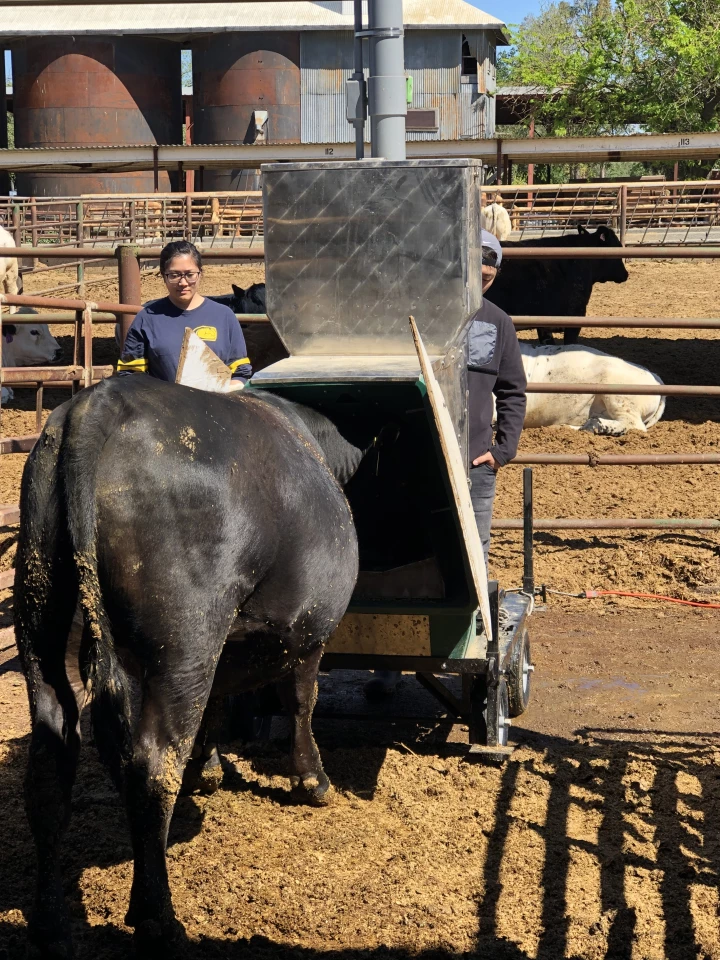Cattle are a major source of greenhouse gas emissions, mainly due to their methane-loaded burps. A detailed new study has found more evidence that feeding cows a small seaweed supplement can greatly reduce their methane emissions, without affecting their health or the taste of the meat.
Methane might not be as abundant a greenhouse gas as carbon dioxide, but it makes up for that in potency – over a 20-year period it traps 84 times more heat than CO2. Agriculture is the biggest contributor of the gas, with livestock belching out 37 percent of all human-induced methane.
As such, calls are increasingly being made for people to reduce the amount of red meat they eat. And while that’s still a good idea in general, changing our diets might not be the only solution – changing theirs helps too.
Over the past few years, researchers at CSIRO and the University of California Davis (UCD) have shown that slipping just a little bit of seaweed into cattle’s regular feedstock can drastically reduce their methane emissions.

For the new study, the team scaled up the experiments from two weeks to five months. Over that time they gave 21 beef cattle different amounts of Asparagopsis taxiformis, a seaweed species that grows in tropical Australian waters. This plant seems to work by disrupting enzymes in the animals’ gut that produce methane.
Four times a day, the researchers measured the methane levels in the cows’ breath by having them eat out of a specialized device. The study found that the cows that ate seaweed doses of around 80 g (3 oz) burped out 82 percent less methane than control cows, while still gaining the same amount of weight.

Importantly, the efficacy of the methane reduction didn’t diminish over the five-month experiment period. And taste tests showed that there was no change in meat or milk that came from animals being fed the new diet.
“We now have sound evidence that seaweed in cattle diet is effective at reducing greenhouse gases and that the efficacy does not diminish over time,” says Ermias Kebreab, an author of the study.
There are still some logistical hurdles to overcome, however. The team says that it’s difficult to farm this particular seaweed at larger scales, and exactly how the supplements can be administered to free-grazing cows is unclear. But the researchers say these questions will be the focus of future work.
The research was published in the journal PLOS One.
Source: UCD







